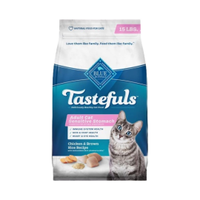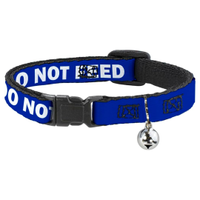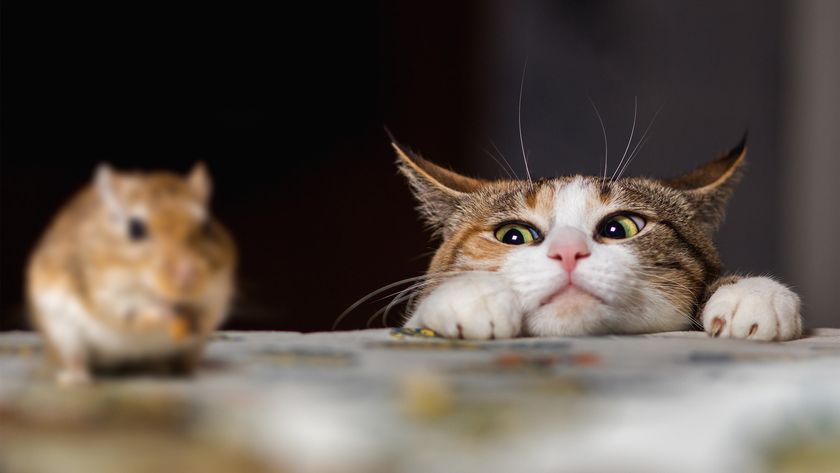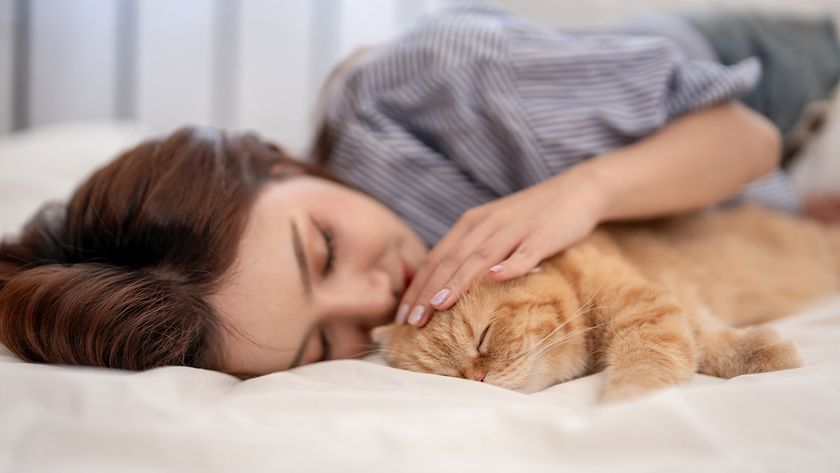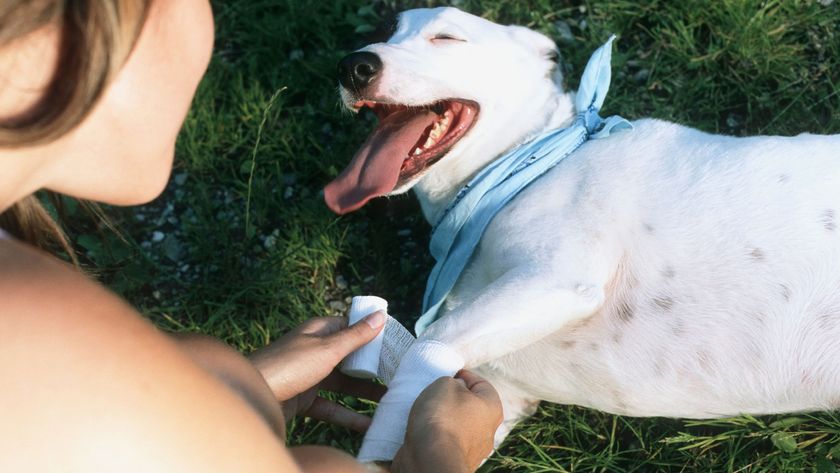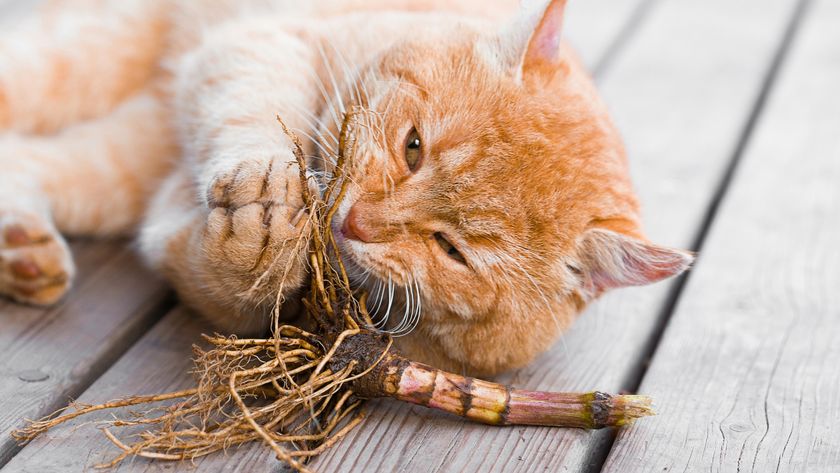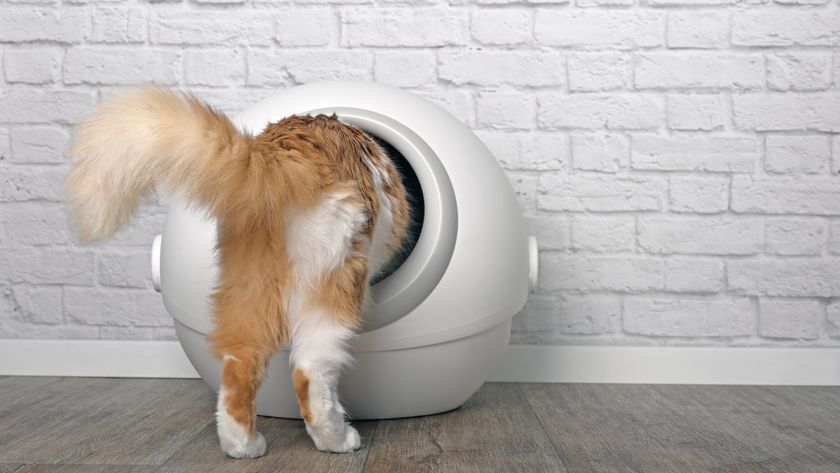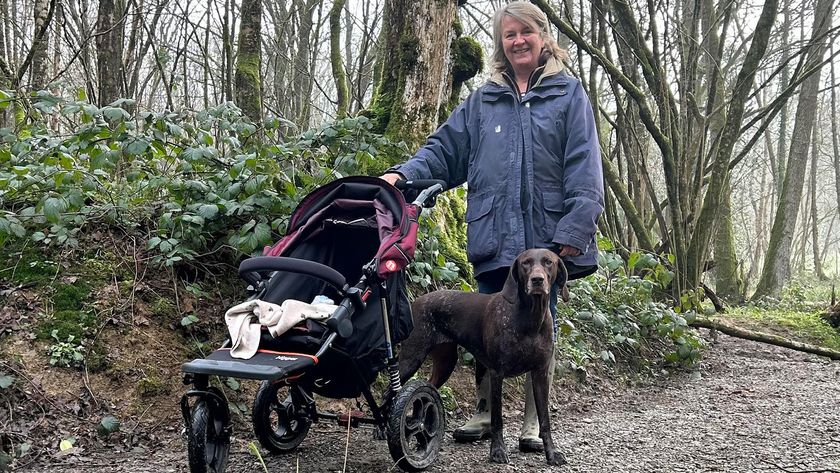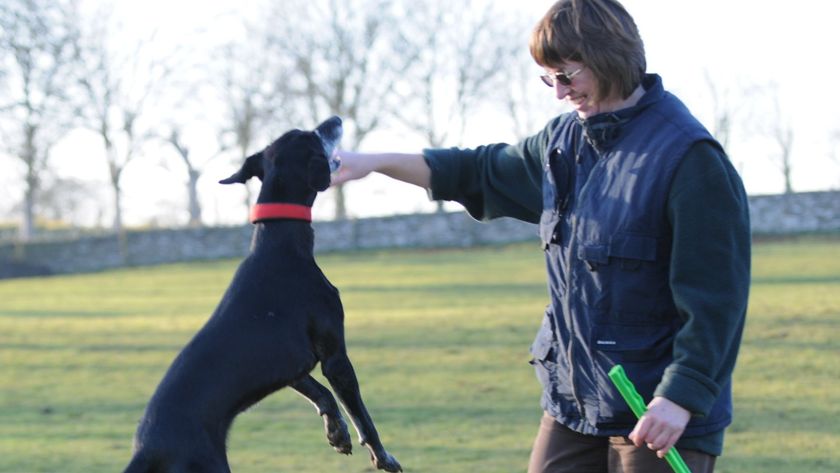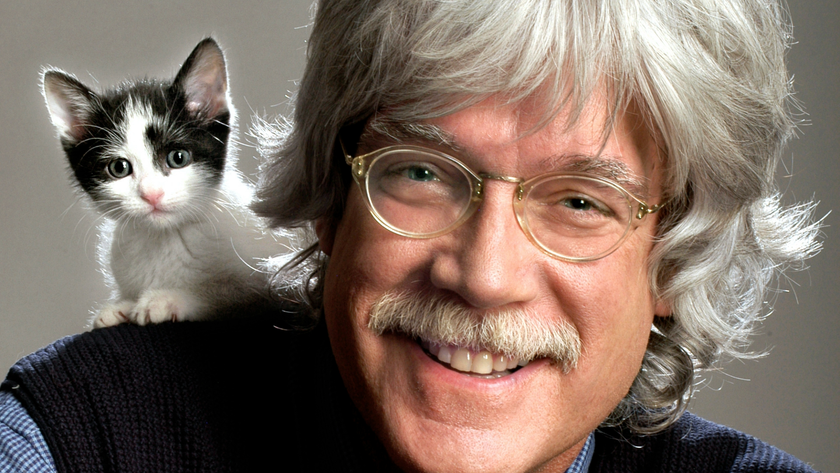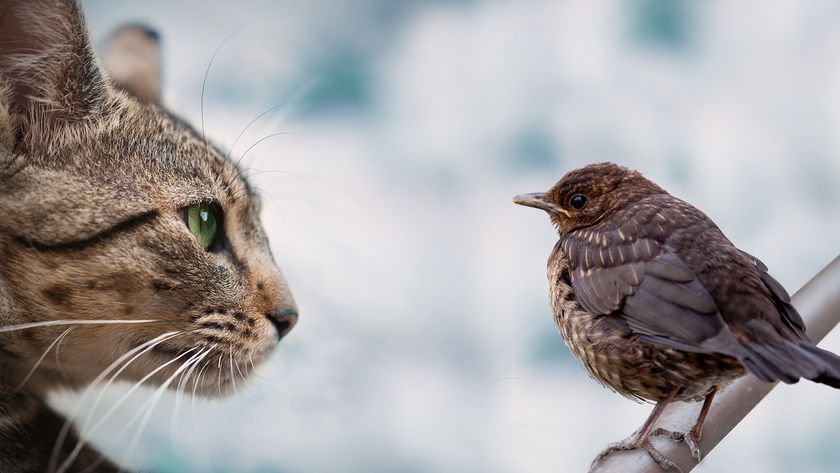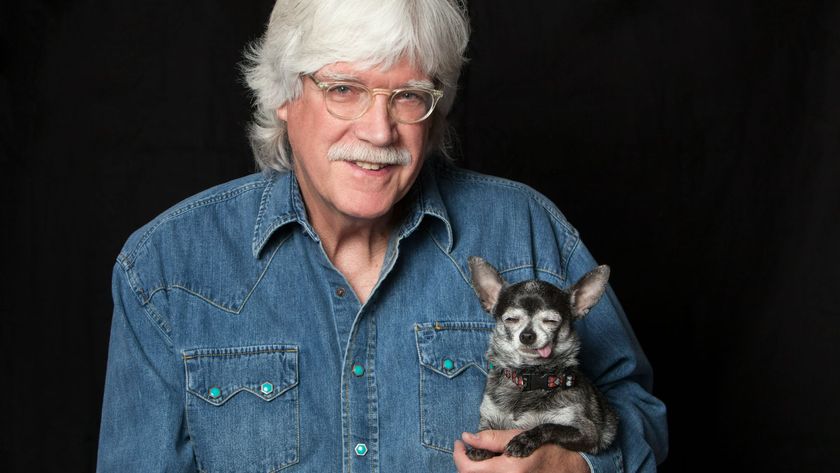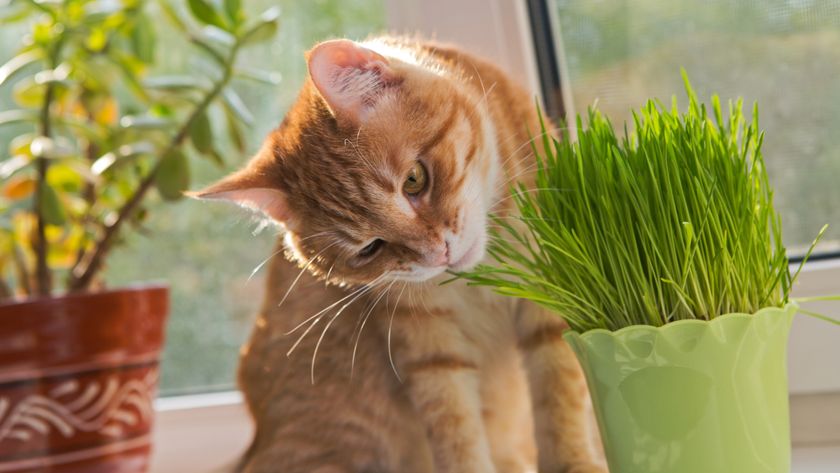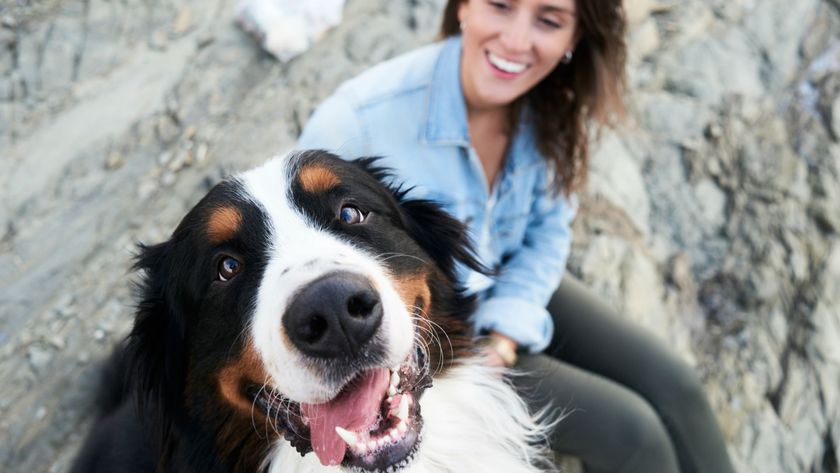10 reasons why your cat won’t eat wet food, according to a vet
Here’s what to do if your cat won’t eat wet food
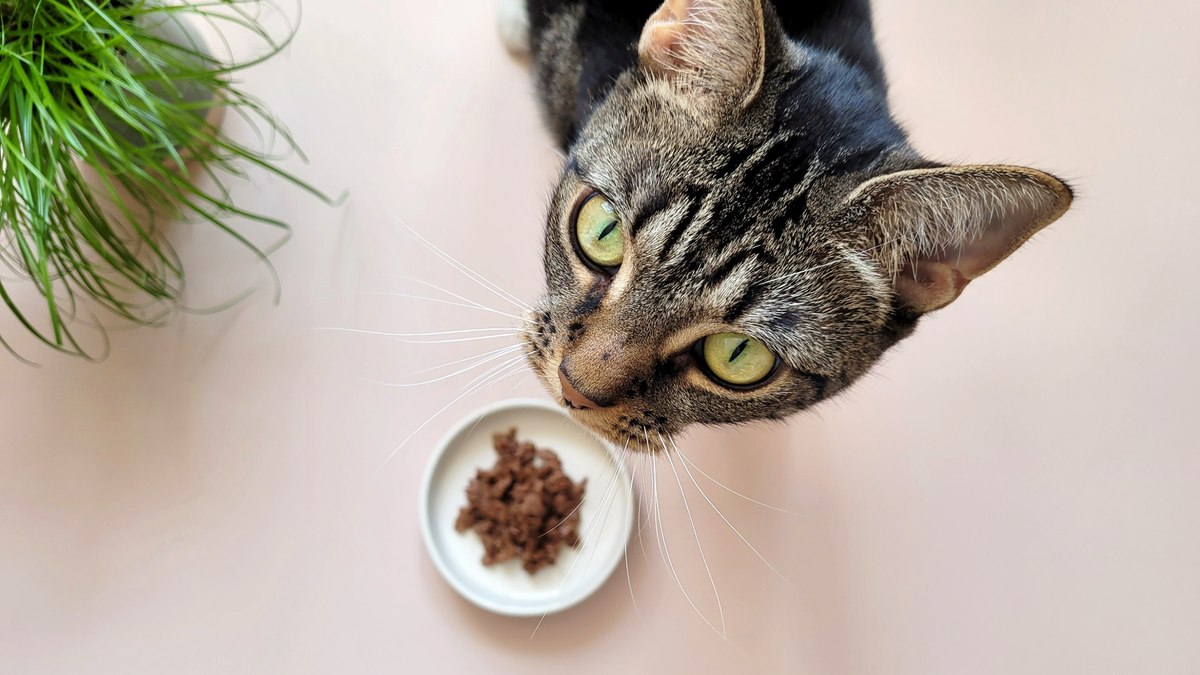
It can feel very confusing when your cat won’t eat wet food – especially if it’s what they’ve always been fed and enjoyed. While they might just be a picky eater, if your cat isn’t eating at all or has any additional symptoms (like vomiting, coughing, or diarrhea), it’s crucial that you visit your vet to determine what’s wrong.
The best wet cat food has many benefits, including higher protein and lower calories than dry, so we don’t blame you for wanting to get to the bottom of this problem. It can also help keep your cat hydrated, which is particularly important for seniors or those with medical conditions like kidney disease or urinary tract disease.
Below, our vet lists 10 things you need to check if your cat isn’t eating wet food, whether it’s a cause for concern, and how to encourage them to start again. Dr. Sarah-Jane Molier, a qualified vet for over a decade and a half, is here to guide you with her expert advice.
Why won't my cat eat wet food?
Cats can be fussy creatures, and they love routine. Any small deviation from the norm can cause a temporary change in your cat’s eating habits.
If your cat doesn’t eat for 24 hours or more, then you must take them to a vet straight away. Cats need to eat regularly, or they can rapidly develop something called fatty liver syndrome (hepatic lipidosis), which requires prompt treatment.
While any cat can be affected, you might be surprised to learn that it’s even more serious for overweight cats to go without food since they are more prone to hepatic lipidosis.
Here are some possible reasons that your cat won’t eat wet food:
1. The recipe has changed: The food manufacturer may have changed some of the ingredients or altered the flavor slightly. This isn’t always immediately obvious on the packet, but your cat is likely to notice!
2. The type of wet food has changed: Have you swapped from gravy-based to pâté-based, for example? Cats can be fussy about textures and may favor a certain type of wet food.
3. A dirty bowl: Wet food leaves more residue in the bowl than kibble, so the bowl gets dirty quicker. The bowl may look clean, but cats have a very keen sense of smell. Similarly, residues of strong smelling liquid can offend your cat. If you're wondering how to get started, read our guide on how to clean your cat's water bowl and food dishes.
4. Personal preference: While most cats prefer the taste of wet food (which tends to be smellier), some cats would rather eat kibble instead!
Blue Buffalo Tastefuls Sensitive Stomach Adult Dry Cat Food | Amazon
Containing prebiotics to promote a healthy gut, this recipe is perfect for sensitive stomachs and was voted one of the best dry cat foods in our buying guide. We love that chicken is the number one ingredient, providing your feline with plenty of protein to support muscle and bone growth.
5. Changes in the weather or food storage conditions: One of the appeals of wet food is that it smells delicious! When the food gets cold, it loses its smell, which may make the food disinteresting to your cat. So, if it’s particularly cold outside, or you’ve started storing their wet food in the fridge, try warming it a bit. You might want to invest in one of the best pet food containers.
6. A recent trip to the cattery or veterinary hospital: If the cattery or hospital fed your cat their favorite wet food while they were there, then they may now have a negative association with that food. This is called a ‘food aversion’. Simply put, it means your cat now associates that food with their stay in the cattery or hospital. If this is the case, it may be time to try a new food!
7. Expired food: Does cat food expire? Yes, it does! If your cat is suddenly turning their nose up at their wet food, it’s always worth checking the use-by date. Cats have amazing senses and won’t eat food if it’s spoiling.
8. Eating elsewhere: If your cat is hunting more than usual, or a well-meaning neighbor is suddenly feeding them, then your cat may appear to not eat their food. You could try a collar with ‘do not feed me’ printed on it.
‘Do Not Feed’ Breakaway Cat Collar with Bell | Amazon
If your cat is being fed elsewhere, this ‘do not feed’ collar is a great investment, preventing neighbors from giving them extras. It features a breakaway design to prevent your cat from getting caught on branches and a bell to warn and protect wildlife.
9. Stress: Any changes to their routine or environment can stress some cats enough they seem disinterested in their food. Have you changed where you feed them? Cats don’t like it if the food is too close to their water bowl or litter tray.
10. Inappetence: If your cat stops eating and has any other signs of illness, such as vomiting, diarrhea, or sleeping more than usual, then you should take them to your vet as soon as possible. If your cat was previously eating ravenously then suddenly stopped, this could indicate an illness such as diabetes in cats, or an overactive thyroid.
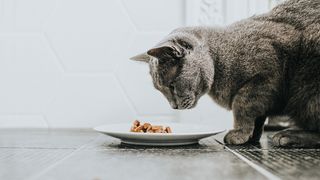
Is it bad if my cat won't eat wet food?
Can cats eat dry food only? Wet and dry food have different pros and cons, so many people opt for a mixture of the two. Many cats live long, healthy lives eating solely dry food.
Dry food is convenient, useful for cats that graze, and can prevent boredom when fed through the best cat puzzle feeders. It also tends to be higher in calories, so can be useful for underweight cats, or cats who need higher calories.
Wet food is great for increasing water intake, making it beneficial for cats prone to urinary issues or constipation. It is also a good option for overweight cats. If you think your cat would benefit from a wet food diet but they won’t eat it, and you’ve tried our tips below, then speak with your vet team for advice.
How to tell if cat doesn't like their food
Wondering how to tell if your cat doesn't like their food? If it’s a new food, try offering their usual food. If they dig in, that’s a sure sign they don’t like the new food! If it’s their usual food, try offering them something new to see if they’ve lost interest in their usual food.
You might notice that your cat is happy to eat treats, but not their food. Treats are highly palatable and tasty, so if your cat isn’t feeling like eating, these high-value treats may still tempt them.
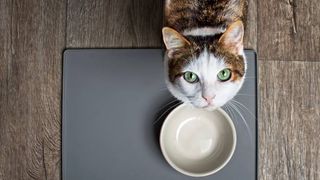
How to encourage a cat to eat wet food
If you’re keen for your cat to eat some wet food, you can start by:
1. Adding a small amount to their usual dry food
2. Gently warming the wet food can make it more appealing, as it brings out the smell (of course, always check it’s not too hot before offering it to your cat!).
3. Trying different textures and flavors of wet food, to see which your cat likes.
4. Mixing in some warm cat milk initially may help tempt your cat.
Remember that any change in a cat’s diet should be done slowly, over one to two weeks, to avoid tummy upsets! This also gives your cat time to adjust.
If your cat won’t eat wet food when they usually do, there are many possible reasons. It’s important to check there isn’t an underlying medical issue, so call your vet for advice and to schedule a check-up. Remember, if your cat isn’t eating at all then they need to see a vet urgently.
For more kitty-related health content, be sure to read: Is dry cat food best?, is wet food bad for cats? and why won't my cat eat dry food?

Sarah-Jane Molier wanted to be a vet from around the age of ten. After much hard work, and her first degree in animal science, she realized this dream and graduated in 2009. She has been working in small animal clinics ever since. She currently works as Head Veterinarian in a small animal practice. Sarah-Jane particular enjoys internal medicine, alongside her managerial role.
Edited by Georgia Guerin and Alexis de Leaver.
Recent updates
This feature was last updated on February 5, 2025.
PetsRadar Newsletter
Get the best advice, tips and top tech for your beloved Pets
Sarah-Jane Molier graduated in 2009 and has been enjoying life as a vet ever since. She currently works as Head Veterinarian in a small animal practice. Sarah-Jane particular enjoys internal medicine, alongside her managerial role. When not working in practice Sarah-Jane enjoys sharing her knowledge and helping pet parents by writing on a wide variety of animal health and medicine topics. In her spare time Sarah-Jane loves walking Nero (her rescue dog), gardening with her two young children and reading.
- Megan MilsteadStaff Writer
